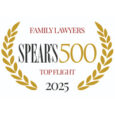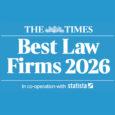09 Apr 2015
Mark Harper comments in the FT re Sharland divorce case
Sharland divorce case reopens grounds for financial settlements
Jane Croft | Financial Times
An IT entrepreneur who built one of the UK’s top software companies is being taken to court by his estranged wife who claims he misled her about his business plans when negotiating her divorce settlement.
Alison Sharland, who was awarded a £10.35m settlement in 2012, has been given permission to bring a three-day appeal to the Supreme Court. She is bringing the action against Charles Sharland, the Cheshire entrepreneur who founded AppSense, which allows employees to work on multiple mobile devices seamlessly.
She could receive a greater slice of Mr Sharland’s fortune if she wins her appeal to reopen the case.
This is the latest big-money divorce case to come before the UK’s highest court since its inception five years ago and will reinforce London’s reputation as the divorce capital of the world because of its generosity to ex-wives.
Lawyers say the case is significant because if Mrs Sharland wins, the courts could be flooded with litigants seeking to reopen cases because their spouse failed to disclose all relevant business information.
If she loses, lawyers believe it could encourage more men to limit disclosure about financial assets or business information when negotiating divorce settlements.
The court has not considered the issue of disclosure for some years, said Mark Harper, a lawyer at Hughes Fowler Carruthers.
“The issue of how you value businesses and how the value of businesses should be shared is a very complicated one,” he said. “If this decision gives guidance on what facts have to be disclosed — that will make it easier to deal with these sorts of cases.”
The original High Court hearing in July 2012 lasted five days, after which the Sharlands reached agreement about a financial settlement.
But days later Mrs Sharland’s lawyers urged the court not to seal the court order and to reopen the hearing. She claimed Mr Sharland failed to disclose arrangements to float AppSense, of which he owned about two-thirds, on one of the New York stock exchanges and that he had met investment bankers in New York.
Mr Sharland was subsequently criticised in a ruling by Sir Hugh Bennett, the High Court judge who heard the case. He found Mr Sharland’s evidence had been “seriously misleading” over his assertion that no disposal of shares would be likely for at least three years and he had “laid a false trail” by his “dishonest evidence”.
Sir Hugh ruled that the financial settlement should still stand as the non-disclosure about a possible flotation did not alter the amount awarded.
Mr Sharland is the majority shareholder, although Goldman Sachs invested $71m for a 28 per cent stake in AppSense in 2011.
Mrs Sharland had been seeking 50 per cent of the net proceeds of his AppSense shares if the company were to float.
The value of the company was also in dispute, with the wife arguing it was worth about £75m and the husband £50m. The value of the husband’s shares depended in part on when and in what manner he was able to sell them.
The Court of Appeal upheld the decision, siding with Mr Sharland. Lord Justice Moore-Bick noted that it “may be unusual for a judge to conclude that despite a deliberate failure by a party to give full and frank disclosure the resulting order should not be set aside”.
Read the full article here.







